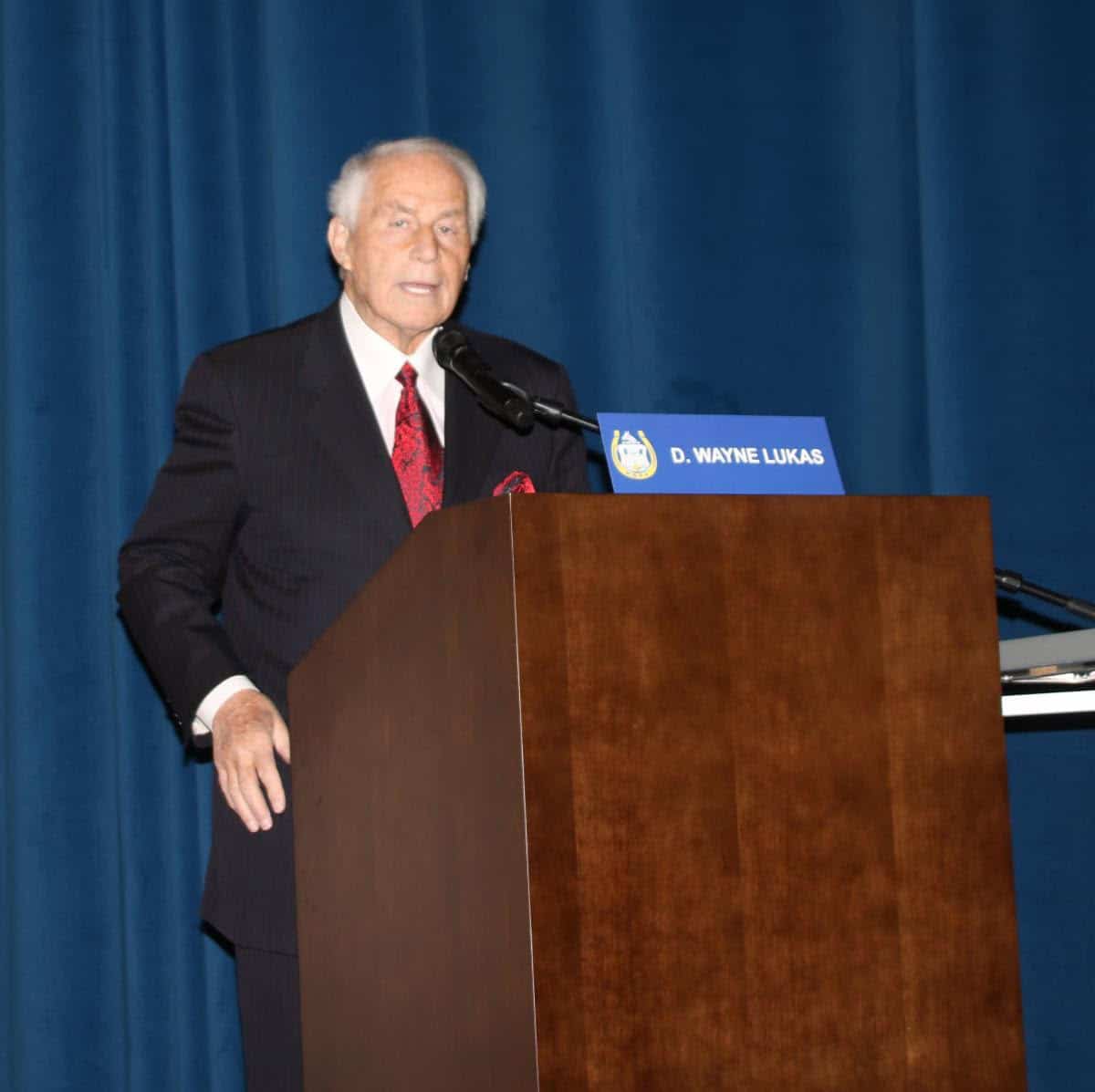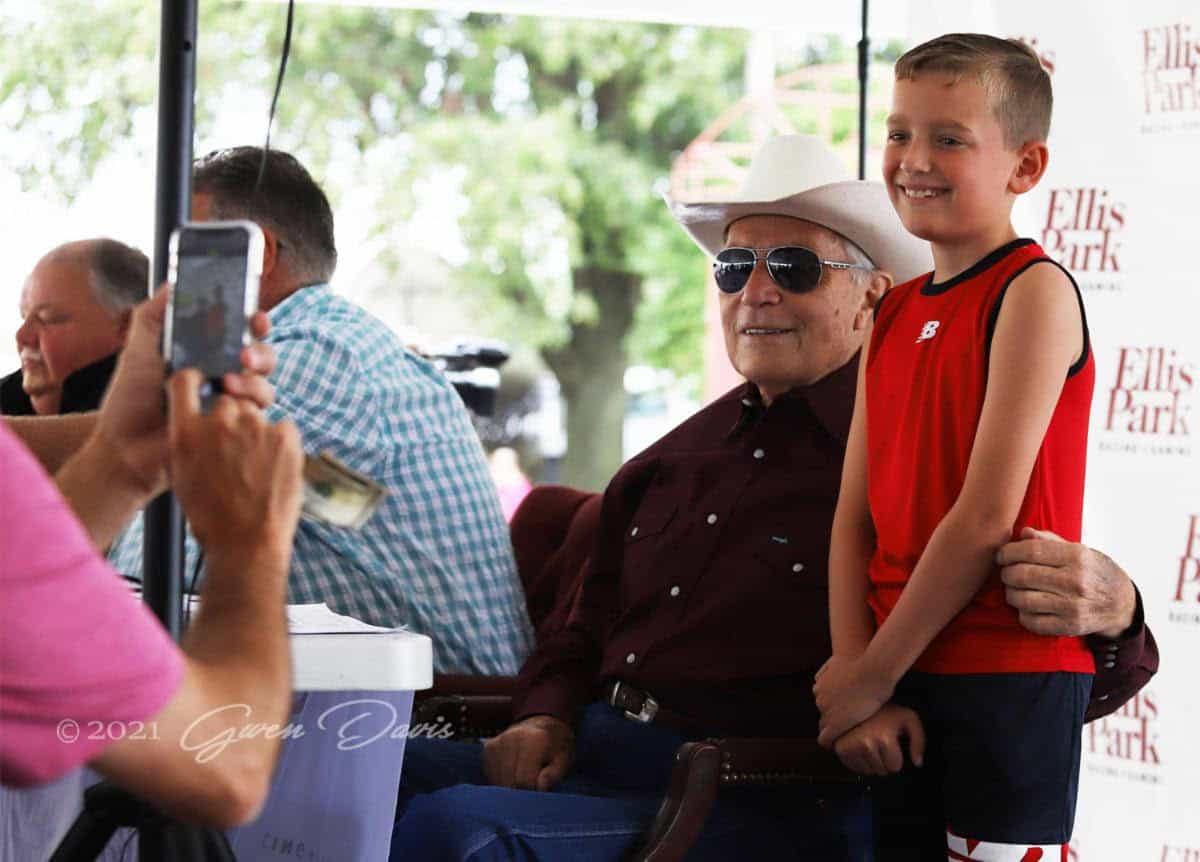Ky. racing commission makes new medication push
Louisville Courier-Journal
The controversial question of whether horses should not receive medication on days they race — as is the rule in most of the world except North America — is about to be a battle again for the Kentucky Horse Racing Commission.
The commission, which dropped prior efforts to ban race-day medication in certain stakes races, now is making a more limited push. The rule being proposed would give racetracks the option of scheduling specific races where no horse can get a race-day dose of the anti-bleeding drug furosemide. That’s the only medication allowed on race day in most U.S. racing states, including Kentucky.
The commission will consider the option March 23 when its rules committee meets. That committee could forward the idea to the full commission, which meets later in the day.
Furosemide, best known as by its former trade name of Lasix, is banned virtually everywhere in the world, with the United States and Canada being the most notable exceptions. While many American horsemen believe furosemide use is therapeutic and limits respiratory bleeding, many elsewhere in the world say it’s unnecessary, ineffective and performance-enhancing.
The proposed rule would override another commission rule that says any horse running in Kentucky “shall be eligible to race with furosemide” under regulatory guidelines that include being administered by a commission veterinarian no closer than four hours to a race. Under the proposal, the cutoff would be 24 hours before a race.
The idea likely will be met with opposition, as it was last year when the rules committee discussed and tabled a similar racetrack-option proposal.
On Tuesday, Marty Maline, the executive director of the Kentucky Horsemen’s Benevolent and Protective Association that represents owners and trainers, said he was polling his board members about the proposal.
“The ones I have polled … are very disappointed that this is coming up again,” Maline said. “We thought that the health and welfare of the horse is paramount, and every indication is that horses need it.”
When the rule could be in place is uncertain. Rule making in Kentucky can take as much as six months with a period for legislative committees to object to the rule. While Gov. Steve Beshear could override the legislative objections or implement the rule by an emergency order, the process frequently is lengthy.
Commission Executive Director John Ward, a former trainer, said Keeneland Race Course wants the change in general, but isn’t shooting for a particular meet.
“It’d be tough to get it in place by fall,” Ward said.
As for the opposition, Ward said, “if they don’t want to run in the race, they don’t enter. And if the race doesn’t fill — and not enough horses — then the race isn’t carded. … Nobody is being forced to do anything that they don’t want to do. So it’s a reasonable option.”
The larger issue of race-day medication has vexed American thoroughbred racing for decades.
In Kentucky, a divided racing commission in 2012 passed a phased-in ban on Lasix for certain stakes races, but that proposal — backed by Gov. Steve Beshear — was dropped before taking effect. It never was submitted to legislators for review because of opposition.
The Breeders’ Cup also backed off a plan to run its year-end championship races without race-day Lasix because of opposition from horsemen. Juvenile Breeders’ Cup races in 2012 and 2013 were run with no race-day furosemide, but the Lexington-based organization never went through with plans to add the ban to its other races for older horses. Last year’s event at Santa Anita Park in Arcadia, Calif., was the first in three years where furosemide was allowed to be used in all races.
Beshear and Kentucky racing officials attended an international conference in France last year where Jockey Club Chairman Ogden Mills “Dinny” Phipps told attendees about his organization’s opposition to race-day medication. Beshear’s comments, in an interview with the Thoroughbred Daily News, were more general about the issue, saying Kentucky wanted to be part of the international discussion.





